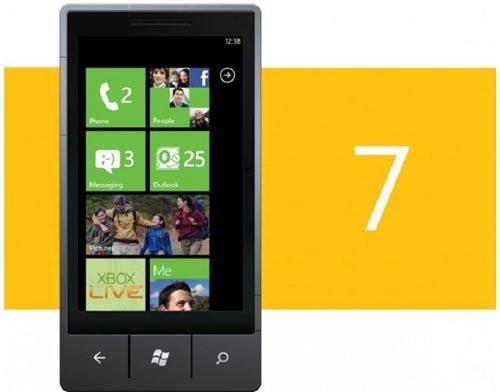
Competition is one of the major parts of any business, especially here in the United States. Almost every company is vying for your attention just a little bit more than another, all in hopes that you’ll buy product A versus product B. And while it can be somewhat overwhelming a times, sifting through the devices that these companies release, and eventually picking the perfect device for you is probably one of the most fulfilling events you’ll have in a particular day. (Unless you suffer from buyer’s remorse.) For companies to be competing with Apple is nothing new, but is Microsoft with their brand new mobile OS in any position to be trying to go for Apple?
Right around the time that Microsoft was getting ready to show off Windows Phone 7 for the first time, I seeing something pop up over and over again. It varied from each instance, but the gist was always the same: Microsoft was looking to take on the other manufacturers little by little. The end result was that Microsoft would be taking on Apple in the end, after the Redmond-based company knocked out all other competitors. I remember seeing Microsoft VS HP, or Microsoft VS Nokia (which is ironic now).
But perhaps the most fitting is Microsoft versus Google. While Apple’s dominance is still present, there’s no denying that Google’s rise towards the top has been uninterrupted since the launch of the mobile platform, and it doesn’t look like it’s going to be slowing down any time soon. Even after the launch of Microsoft’s Windows Phone 7, Android’s climb was steady and focused. Incidentally, when Windows Phone 7 finally made its way to customer’s hands, the mobile operating systems’ shortcomings were pretty obvious. What made it worse, though, was that Apple had managed to jump over these same hurdles, and now a brand new mobile OS was facing the same issues.
These issues are the same ones that Microsoft is looking to fix in their second major update to the OS, codenamed Mango. We know that Windows Phone is getting multitasking and that will be a huge improvement to be sure. But, while Apple has “just” brought multitasking to iOS, Google’s Android platform is known for that sort of thing. And people want to multitask on their smartphones.
If Windows Phone 7 had launched with these issues while Apple was still having them, then it would make sense to me. But Windows Phone 7 was late to the game in faults, and unfortunately for the mobile OS they are some of the most talked about and sought after features. If this is the result of Microsoft aiming for “the big dog” or Apple, then perhaps they should alter their aim for Google, and start chipping away at the features that Android famously touts. If Windows Phone 7 could bring into the fold some of the prominent features that Google incorporates into Android, there’s a real shot for Windows Phone to start seeing some of the success that Android has received.
But, I don’t really see that happening. Apple’s ability to showcase features and promote them to be “magical” and “revolutionary” keeps the fans close to the Cupertino-based company’s vest, and Microsoft wants to get in on that. By going after the “king,” I wouldn’t be surprised if Microsoft saw it as a quick way to the top. However, the problem with that is that the other manufacturers are also going for the same goal, so they’re always improving their own products as well. We won’t see HP stop improving webOS, and we certainly won’t see Google stop adding more and more features to Android’s list. Even BlackBerry from Research In Motion is still trying to add features, which may start including the kitchen sink here soon.
If Microsoft is unable to keep up with Apple, and they’re still missing features that the competition is promoting on their own platforms, then can Microsoft really hope to compete? Do you think Microsoft should change their aim, and perhaps try to pick away at the other competitors, like webOS and Android? Or should Windows Phone keep going for iOS’ footprints? Let me know in the comments below.